#Best Programming Language For Data Science
Explore tagged Tumblr posts
Text

Python For Data Science Course,Best Python For Data Science,Basics Of Python For Data Science,Data Science Using Python,Best Programming Language For Data Science,Python Programming For Data Science,Python For Data Science Course With Certificate,Programming For Data Science With Python
#Python For Data Science Course#Best Python For Data Science#Basics Of Python For Data Science#Data Science Using Python#Best Programming Language For Data Science#Python Programming For Data Science#Python For Data Science Course With Certificate#Programming For Data Science With Python
0 notes
Text
Best Programming Language for data science
Data Science is an ever-evolving field. To become the best in this field, you need to learn the best programming languages for data science that will help you grow your skills and build the best career. Check out this page to learn more about the best data scientist course in Delhi.
#Best Language for data science#Best programming language for data science#Best data science course in Delhi#Best data science institute in Delhi#Data science courses in Delhi#Data science institutes in Delhi#Learn data science#Data scientist course in Delhi#Data scientist institute in Delhi#machine learning
0 notes
Text
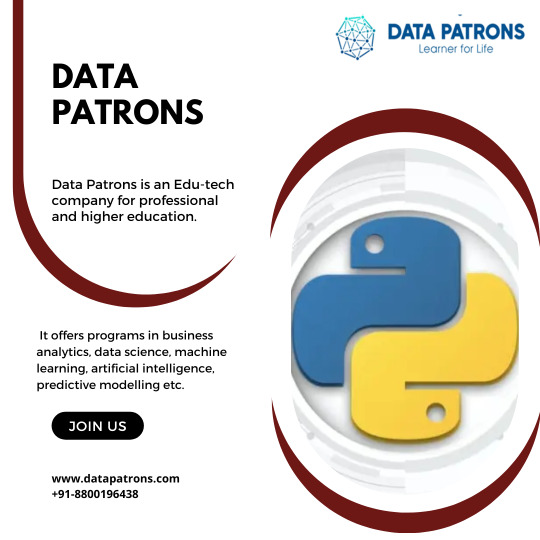
Unlocking Data Secrets: The Power of Python for Data Science in NCR
In the ever-expanding landscape of data-driven decision-making, Python for data science has emerged as the linchpin, offering a seamless integration of programming prowess and analytical acumen. This dynamic duo has become synonymous with innovation, enabling professionals to glean profound insights from vast datasets.
At the heart of Python's dominance in the realm of data science lies its extensive library ecosystem. Python for data science in NCR enthusiasts revel in the versatility bestowed by libraries such as NumPy, Pandas, and Matplotlib. These libraries act as the building blocks for manipulating, analyzing, and visualizing data, providing a robust foundation for data-driven exploration.
Python's innate ability to handle large datasets with grace and precision sets it apart from its counterparts. The simplicity and readability of Python for data science code are instrumental in accelerating the data analysis process. Whether you're a seasoned data scientist or a novice exploring the intricacies of data, Python's syntax offers an accessible entry point and a smooth learning curve.
Machine learning, a cornerstone of contemporary data science, finds an unparalleled ally in Python. TensorFlow and scikit-learn, among others, stand as testaments to Python's prowess in machine learning frameworks. The flexibility of Python for data science allows practitioners to seamlessly transition from data exploration to model development and deployment, fostering a holistic approach to the data science lifecycle.
The collaborative ethos embedded in Python's open-source nature further amplifies its impact on the data science community. Python for data science serves as a conduit for shared knowledge, enabling practitioners to contribute to projects, collaborate on innovative solutions, and stay abreast of the latest developments. This communal spirit has catalyzed the rapid evolution of Python for data science, propelling it to the forefront of the data analysis paradigm.
As we traverse the landscape of data-driven insights, Python for data science in NCR emerges not merely as a tool but as an entire ecosystem—a dynamic and evolving force. Whether unraveling the intricacies of data preprocessing or crafting intricate machine learning models, Python for data science empowers individuals and organizations to unlock the latent potential within their datasets.
Furthermore, the open-source nature of Python fosters a collaborative community where data scientists can share code, contribute to projects, and stay updated on the latest developments in the field. This collaborative spirit has contributed significantly to the rapid growth of Python for data science.
In conclusion, Python for data science is not just a tool; it's a dynamic and evolving ecosystem that empowers individuals and organizations to harness the power of data. Whether you're cleaning and preprocessing data or building complex machine learning models, Python for data science provides the flexibility and tools needed to turn raw data into actionable insights. Embrace Python for data science, and unlock the true potential of your data-driven endeavors.
In summation, embrace Python for data science as more than a programming language; embrace it as a conduit for transformation. Navigate the seas of data with Python as your compass, and watch as raw information metamorphoses into actionable insights. Python for data science is not just a choice; it's a strategic decision to wield the power of data with finesse and ingenuity.
#python for data science#top python course training#python programmiing#python for data science in ncr#top python course training institute in ncr#deep python course training institute in ncr#python course#best python training course institute in ncr#python programming#python for data science inncr#python language
1 note
·
View note
Text
get to know your tumblr mutuals tag!
i was tagged by @nfly5, thank you laura!! :))
1. what's the origin of your username?
i think wyll ravengard of bg3 fame and lae'zel also of bg3 fame should kiss and fall in love and ride dragons into the sunset (or, rather, the astral plane) together :)


2. otps + shipname
wyllzel 🥰 and vivwall (vivienne x blackwall dai) at the moment for sure!
i'm trying to think of more, but honestly i'm p easygoing when it comes to ships haha i'll take a peek at almost anything that seems compelling 🫣
3. song stuck in my head
"purple lace bra" by tate mcrae for uhhh no reason 🤫 and "feel it" by d4vd for also no reason LOL (🎶 you told me once that i was crazy i said babygirl i knooooowww but i can't let you gooo (away!) 🎶)
4. weirdest trait/habit
i have a growing aversion to cold drinks lol it's starting to feel odd drinking something that isn't hot... that's not that weird though, i think i'm just becoming a grandma LOL
5. hobbies
photoshop!! i like making gifs and edits and such :) i've also been writing a lot more recently which is crazy, i haven't felt this inspired or productive in forever :'D thank you DA lol 🩷
i am also v much a webtoon enjoyer (my all-time fave is "trash belongs in the trash can!" but i'm currently v invested in "nevermore," "i'm the queen in this life," "sisters at war," and "momfluencer"!), but i'll read manga (tatsuki fujimoto my GOAT) and comics (invincible also my GOAT)
6. if you work, what's your profession?
i write internal software documentation which means it's architectural, high-level design stuff... not so much code-specific, but the reasoning behind why software components are organized the way they are. it's not very fun, mostly mind-melting... i work closely w engineers and it's kind of a toss-up whether they'll be nice/patient or think i'm stupid lol
but my brain now contains so many company secrets :^) if you ever have any questions about data storage/virtualization i can possibly help lol
7. if you could have any job you wish, what would you have?
funny story—i applied for grad school, and i've been accepted to an english m.a. program that starts this fall!!! 🥹 we'll see where i go w that, but i'll likely enter education!
8. something you're good at?
uhh i suppose BG3 LOL i beat honor mode twice! 🎉 (i'm still trying to figure out how DA works 🤔 DA2 hard mode is chill idk if i'd ever do nightmare tho 😬)
9. something you hate?
ok it's not rly a "hate" thing but it does irk me when i see fandom claims/arguments that don't cite specific quotes/screenshots/instances lol (the english major in me activates and i am consumed by the thought "🚨‼️ where do you see this in the text 👁️👁️🫵" LOL)
10. something you forget?
the grief 😂🖐️ it creeps up on me! almost cried in my cubicle multiple times this week. haha.
11. your love language?
receiving is probably words of affirmation? giving is probably gifts, i like making silly things for my bestie (eg. fenris keychain lol) and finding weird stickers for my brother 🤡
12. favorite movies/shows?
my letterboxd top 4 are:
everything everywhere all at once (2022) (saw it twice in theaters and sobbed thru both times)
nope (2022) (BRILLIANT movie, so smart)
challengers (2024) (so fascinating!)
lust, caution (2007) (i need to rewatch this one expeditiously)
as for shows, i love succession (2018-23), invincible (2021-), and the twilight zone (1959-64)!
13. what were you like as a child?
apparently very friendly, outgoing, and extroverted! i would just run up to my fellow kids and yap at them?! i do nooot do that anymore lol
14. favorite subject in school?
english/literature!!
15. least favorite subject?
oh man, i was so bad at science, especially biology/chemistry... i could scrape by in physics bc i was decent at math, but it was still awful...
16. what's your best/worst character trait?
worst...??? according to my last annual review, i need to be more confident in the workplace LOL 💀 + sometimes i let my anxiety get the better of me... i think that's just a lifelong struggle thing though, but i know i can improve to be a better friend and such 💪
best... multiple reviews from mom-aged women say that i am a "nice" and "sweet" person so hopefully at least that means i can leave a good first impression haha
17. if you could change any detail of your life right now, what would it be?
i'm not a huge fan of what-if-ing personally, but i do wish i were on vacation 😆
18. if you could travel in time, who would you like to meet?
i'm currently very curious about my paternal grandparents... it's hard for me to conceptualize why they got married... and how my dad grew up... i guess i would want to witness some of that??
tagging: hello again haha!! @creaking-skull @andrewknightley @coolseabird @genderdotcom @bladeweave @grey-wardens @maironsbigboobs no pressure again :))
#chelle.txt#tag game#wow that was a lot of self-reflection!! :O#thank you again for the tag laura!! <3
18 notes
·
View notes
Note
Hey there! I want to go into statistical analysis and comms/data analysis, and I have a pretty good plan in place already and know what I'm doing, but was wondering if there are any tips you could give as I see in your bio you're studying data science?
Anything I should do for prep/classes to take to get me a leg up would be amazing, thank you in advance!
Hey there! Thanks for the ask!
If you're going into stat, the first thing I'd suggest is get a good grip on your maths.(Rhyme not intended lol) You should take courses on Derivatives, Integrals, Linear Algebra. We are also taught Real analysis pretty intensively.
For programming languages, I'd say Python is more than enough. But R, SQL are good to have on your CV. Open up a kaggle account and start doing some work there. It will take you a long way.
The best tip I can give you is to take care of your health. It's a pretty taxing subject once you get into it. But prioritise yourself first. Our coursework is intense and while it might not be the same for you, doing mathematics all day is always difficult.
Good luck on your journey. Hope I was of help.
#altin answers#studyblr#studyspo#study motivation#study inspiration#study hard#study aesthetic#studying#study#datablr#statblr#statistics#study study study
9 notes
·
View notes
Note
what's it like studying CS?? im pretty confused if i should choose CS as my major xx
hi there!
first, two "misconceptions" or maybe somewhat surprising things that I think are worth mentioning:
there really isn't that much "math" in the calculus/arithmetic sense*. I mostly remember doing lots of proofs. don't let not being a math wiz stop you from majoring in CS if you like CS
you can get by with surprisingly little programming - yeah you'll have programming assignments, but a degree program will teach you the theory and concepts for the most part (this is where universities will differ on the scale of theory vs. practice, but you'll always get a mix of both and it's important to learn both!)
*: there are some sub-fields where you actually do a Lot of math - machine learning and graphics programming will have you doing a lot of linear algebra, and I'm sure that there are plenty more that I don't remember at the moment. the point is that 1) if you're a bit afraid of math that's fine, you can still thrive in a CS degree but 2) if you love math or are willing to be brave there are a lot of cool things you can do!
I think the best way to get a good sense of what a major is like is to check out a sample degree plan from a university you're considering! here are some of the basic kinds of classes you'd be taking:
basic programming courses: you'll knock these out in your first year - once you know how to code and you have an in-depth understanding of the concepts, you now have a mental framework for the rest of your degree. and also once you learn one programming language, it's pretty easy to pick up another one, and you'll probably work in a handful of different languages throughout your degree.
discrete math/math for computer science courses: more courses that you'll take early on - this is mostly logic and learning to write proofs, and towards the end it just kind of becomes a bunch of semi-related math concepts that are useful in computing & problem solving. oh also I had to take a stats for CS course & a linear algebra course. oh and also calculus but that was mostly a university core requirement thing, I literally never really used it in my CS classes lol
data structures & algorithms: these are the big boys. stacks, queues, linked lists, trees, graphs, sorting algorithms, more complicated algorithms… if you're interviewing for a programming job, they will ask you data structures & algorithms questions. also this is where you learn to write smart, efficient code and solve problems. also this is where you learn which problems are proven to be unsolvable (or at least unsolvable in a reasonable amount of time) so you don't waste your time lol
courses on specific topics: operating systems, Linux/UNIX, circuits, databases, compilers, software engineering/design patterns, automata theory… some of these will be required, and then you'll get to pick some depending on what your interests are! I took cybersecurity-related courses but there really are so many different options!
In general I think CS is a really cool major that you can do a lot with. I realize this was pretty vague, so if you have any more questions feel free to send them my way! also I'm happy to talk more about specific classes/topics or if you just want an answer to "wtf is automata theory" lol
#asks#computer science#thank you for the ask!!! I love talking abt CS and this made me remember which courses I took lol#also side note I went to college at a public college in the US - things could be wildly different elsewhere idk#but these are the basics so I can't imagine other programs varying too widely??
10 notes
·
View notes
Text
Discover the Best Platform for Online Courses in India – UniversityGuru.org
In today's fast-paced, digitally connected world, online education has transformed the way we learn and grow. Whether you're a student looking for flexible learning options or a working professional aiming to upskill, UniversityGuru.org is your one-stop platform to find and compare top-ranked universities offering online degree programs in India.

Why Choose Distance Learning?
Distance learning universities have opened doors for millions who want to earn a degree without attending physical classrooms. With accredited programs, recognized degrees, and flexible schedules, online learning is now the smart way to grow academically and professionally.
What Makes UniversityGuru.org Stand Out?
At UniversityGuru.org, you get more than just a list of universities. You gain access to:
1.A curated comparison of top universities offering online courses in India
2.Detailed course listings from accredited institutions
3.Programs in business, technology, arts, healthcare, and more
4.A simple, intuitive platform to apply for online degrees
5.Guidance to match your academic goals with the best-suited university
Whether you're looking for distance learning courses or want to explore the best online courses tailored to your career ambitions, this platform helps you make informed decisions — all in one place.
Popular Categories You Can Explore
Here are some trending online degree programs in India featured on UniversityGuru.org:
MBA and Executive MBA (Distance)
B.A. & M.A. in Psychology, Economics, Sociology
BBA, BCA, and MCA
Digital Marketing, Data Science, AI & ML
Healthcare and Nursing programs
Language and Communication courses
These courses are not just academically strong — they’re career-relevant and designed to meet modern industry demands.
The Future of Education is Online
With a growing demand for online learning platforms in India, students are now opting for flexibility without compromising on quality. UniversityGuru.org brings together the best platform for online courses in India, ensuring that every learner finds a course that perfectly aligns with their goals.
Ready to Start Learning?
Visit universityguru.org and take your first step toward a brighter future. Find the right program, compare top universities, and apply for online degrees from the comfort of your home.
No more guesswork. Just smart, simple, and scalable education.
#Distance learning universities#Apply for online degree#Best platform for online courses in India#Online courses in India#Best online courses#Online learning platforms India#Distance learning courses#Online degree programs India
2 notes
·
View notes
Text
Python for Beginners: Launch Your Tech Career with Coding Skills
Are you ready to launch your tech career but don’t know where to start? Learning Python is one of the best ways to break into the world of technology—even if you have zero coding experience.
In this guide, we’ll explore how Python for beginners can be your gateway to a rewarding career in software development, data science, automation, and more.
Why Python Is the Perfect Language for Beginners
Python has become the go-to programming language for beginners and professionals alike—and for good reason:
Simple syntax: Python reads like plain English, making it easy to learn.
High demand: Industries spanning the spectrum are actively seeking Python developers to fuel their technological advancements.
Versatile applications: Python's versatility shines as it powers everything from crafting websites to driving artificial intelligence and dissecting data.
Whether you want to become a software developer, data analyst, or AI engineer, Python lays the foundation.
What Can You Do With Python?
Python is not just a beginner language—it’s a career-building tool. Here are just a few career paths where Python is essential:
Web Development: Frameworks like Django and Flask make it easy to build powerful web applications. You can even enroll in a Python Course in Kochi to gain hands-on experience with real-world web projects.
Data Science & Analytics: For professionals tackling data analysis and visualization, the Python ecosystem, featuring powerhouses like Pandas, NumPy, and Matplotlib, sets the benchmark.
Machine Learning & AI: Spearheading advancements in artificial intelligence development, Python boasts powerful tools such as TensorFlow and scikit-learn.
Automation & Scripting: Simple yet effective Python scripts offer a pathway to amplified efficiency by automating routine workflows.
Cybersecurity & Networking: The application of Python is expanding into crucial domains such as ethical hacking, penetration testing, and the automation of network processes.
How to Get Started with Python
Starting your Python journey doesn't require a computer science degree. Success hinges on a focused commitment combined with a thoughtfully structured educational approach.
Step 1: Install Python
Download and install Python from python.org. It's free and available for all platforms.
Step 2: Choose an IDE
Use beginner-friendly tools like Thonny, PyCharm, or VS Code to write your code.
Step 3: Learn the Basics
Focus on:
Variables and data types
Conditional statements
Loops
Functions
Lists and dictionaries
If you prefer guided learning, a reputable Python Institute in Kochi can offer structured programs and mentorship to help you grasp core concepts efficiently.
Step 4: Build Projects
Learning by doing is key. Start small:
Build a calculator
Automate file organization
Create a to-do list app
As your skills grow, you can tackle more complex projects like data dashboards or web apps.
How Python Skills Can Boost Your Career
Adding Python to your resume instantly opens up new opportunities. Here's how it helps:
Higher employability: Python is one of the top 3 most in-demand programming languages.
Better salaries: Python developers earn competitive salaries across the globe.
Remote job opportunities: Many Python-related jobs are available remotely, offering flexibility.
Even if you're not aiming to be a full-time developer, Python skills can enhance careers in marketing, finance, research, and product management.
If you're serious about starting a career in tech, learning Python is the smartest first step you can take. It’s beginner-friendly, powerful, and widely used across industries.
Whether you're a student, job switcher, or just curious about programming, Python for beginners can unlock countless career opportunities. Invest time in learning today—and start building the future you want in tech.
Globally recognized as a premier educational hub, DataMites Institute delivers in-depth training programs across the pivotal fields of data science, artificial intelligence, and machine learning. They provide expert-led courses designed for both beginners and professionals aiming to boost their careers.
Python Modules Explained - Different Types and Functions - Python Tutorial
youtube
#python course#python training#python#learnpython#pythoncourseinindia#pythoncourseinkochi#pythoninstitute#python for data science#Youtube
2 notes
·
View notes
Text
Why Python Will Thrive: Future Trends and Applications
Python has already made a significant impact in the tech world, and its trajectory for the future is even more promising. From its simplicity and versatility to its widespread use in cutting-edge technologies, Python is expected to continue thriving in the coming years. Considering the kind support of Python Course in Chennai Whatever your level of experience or reason for switching from another programming language, learning Python gets much more fun.

Let's explore why Python will remain at the forefront of software development and what trends and applications will contribute to its ongoing dominance.
1. Artificial Intelligence and Machine Learning
Python is already the go-to language for AI and machine learning, and its role in these fields is set to expand further. With powerful libraries such as TensorFlow, PyTorch, and Scikit-learn, Python simplifies the development of machine learning models and artificial intelligence applications. As more industries integrate AI for automation, personalization, and predictive analytics, Python will remain a core language for developing intelligent systems.
2. Data Science and Big Data
Data science is one of the most significant areas where Python has excelled. Libraries like Pandas, NumPy, and Matplotlib make data manipulation and visualization simple and efficient. As companies and organizations continue to generate and analyze vast amounts of data, Python’s ability to process, clean, and visualize big data will only become more critical. Additionally, Python’s compatibility with big data platforms like Hadoop and Apache Spark ensures that it will remain a major player in data-driven decision-making.
3. Web Development
Python’s role in web development is growing thanks to frameworks like Django and Flask, which provide robust, scalable, and secure solutions for building web applications. With the increasing demand for interactive websites and APIs, Python is well-positioned to continue serving as a top language for backend development. Its integration with cloud computing platforms will also fuel its growth in building modern web applications that scale efficiently.
4. Automation and Scripting
Automation is another area where Python excels. Developers use Python to automate tasks ranging from system administration to testing and deployment. With the rise of DevOps practices and the growing demand for workflow automation, Python’s role in streamlining repetitive processes will continue to grow. Businesses across industries will rely on Python to boost productivity, reduce errors, and optimize performance. With the aid of Best Online Training & Placement Programs, which offer comprehensive training and job placement support to anyone looking to develop their talents, it’s easier to learn this tool and advance your career.

5. Cybersecurity and Ethical Hacking
With cyber threats becoming increasingly sophisticated, cybersecurity is a critical concern for businesses worldwide. Python is widely used for penetration testing, vulnerability scanning, and threat detection due to its simplicity and effectiveness. Libraries like Scapy and PyCrypto make Python an excellent choice for ethical hacking and security professionals. As the need for robust cybersecurity measures increases, Python’s role in safeguarding digital assets will continue to thrive.
6. Internet of Things (IoT)
Python’s compatibility with microcontrollers and embedded systems makes it a strong contender in the growing field of IoT. Frameworks like MicroPython and CircuitPython enable developers to build IoT applications efficiently, whether for home automation, smart cities, or industrial systems. As the number of connected devices continues to rise, Python will remain a dominant language for creating scalable and reliable IoT solutions.
7. Cloud Computing and Serverless Architectures
The rise of cloud computing and serverless architectures has created new opportunities for Python. Cloud platforms like AWS, Google Cloud, and Microsoft Azure all support Python, allowing developers to build scalable and cost-efficient applications. With its flexibility and integration capabilities, Python is perfectly suited for developing cloud-based applications, serverless functions, and microservices.
8. Gaming and Virtual Reality
Python has long been used in game development, with libraries such as Pygame offering simple tools to create 2D games. However, as gaming and virtual reality (VR) technologies evolve, Python’s role in developing immersive experiences will grow. The language’s ease of use and integration with game engines will make it a popular choice for building gaming platforms, VR applications, and simulations.
9. Expanding Job Market
As Python’s applications continue to grow, so does the demand for Python developers. From startups to tech giants like Google, Facebook, and Amazon, companies across industries are seeking professionals who are proficient in Python. The increasing adoption of Python in various fields, including data science, AI, cybersecurity, and cloud computing, ensures a thriving job market for Python developers in the future.
10. Constant Evolution and Community Support
Python’s open-source nature means that it’s constantly evolving with new libraries, frameworks, and features. Its vibrant community of developers contributes to its growth and ensures that Python stays relevant to emerging trends and technologies. Whether it’s a new tool for AI or a breakthrough in web development, Python’s community is always working to improve the language and make it more efficient for developers.
Conclusion
Python’s future is bright, with its presence continuing to grow in AI, data science, automation, web development, and beyond. As industries become increasingly data-driven, automated, and connected, Python’s simplicity, versatility, and strong community support make it an ideal choice for developers. Whether you are a beginner looking to start your coding journey or a seasoned professional exploring new career opportunities, learning Python offers long-term benefits in a rapidly evolving tech landscape.
#python course#python training#python#technology#tech#python programming#python online training#python online course#python online classes#python certification
2 notes
·
View notes
Text
Python Course Training Institute in NCR: Unlock Your Full Potential
The ability to code has become an essential talent for people seeking success in today's technologically driven environment. Python, an advanced and adaptable programming language, has grown in popularity due to its ease of use, readability, and broad range of applications. Python is quickly becoming the language of choice for aspiring developers and tech aficionados, and with good reason. We will discuss the significance of technical brilliance and how Python course training institute can help students realize the full potential of this amazing language.
Recognising the Importance of Technical Excellence
Any successful programming endeavour requires technical proficiency. It entails a wide range of talents and traits, such as programming language expertise, problem-solving abilities, and a thorough understanding of coding principles. Technical competence allows developers to build efficient and robust solutions to complicated challenges, increasing productivity and allowing them to stand out in a competitive employment market.
Python's Strength
Python has quickly become one of the most popular programming languages due to its ease of use and versatility. Its simple syntax and readability make it a good choice for beginners, while its extensive library and framework collection caters to the needs of experienced developers. Python is widely utilised in a variety of fields such as web development, data analysis, machine learning, artificial intelligence, and automation. Its adaptability enables developers to seamlessly migrate between projects and adapt to changing industry trends.
Student Empowerment through Python Course Training
Deep Python course training institute is critical in enabling students to fully utilise the language's capabilities. Such training programmes offer a structured learning environment in which students can master the skills and information required to become successful Python developers. Let's look at how Python course instruction helps students:
Extensive Curriculum
Python course training normally includes a complete curriculum that covers programming basics, Python syntax, data structures, algorithms, and other topics. Students receive a strong foundation in programming fundamentals, allowing them to easily tackle complicated coding challenges.
Practical Experience
When it comes to mastering Python, practical experience is essential. Hands-on activities, coding projects, and real-world examples are common features of training programmes, allowing students to apply their skills in a practical situation. This hands-on approach promotes a deeper understanding of Python and increases students' confidence in their programming talents.
Expert Advice
Python training is frequently taught by professional instructors who are fluent in the language. These experts provide students with useful insights, assistance, and comments, allowing them to improve their coding skills and adopt best practises. Mentorship and assistance provided during training contribute considerably to students' growth as Python developers.
Collaborative Education
Through group projects and conversations, many Python training programmes emphasise collaborative learning. This encourages teamwork and allows pupils to learn from their peers. Collaborative learning improves problem-solving abilities, fosters creativity, and introduces students to other programming ideas and methodologies.
Why Should You Go for Deep Python Course Training Institute in NCR?
The curriculum at the institute has been rigorously crafted to cover all elements of Python programming, ensuring that students obtain a well-rounded education.
Expertise and Experience: Data Patrons is well-known for its highly talented and experienced instructors who are well-versed in Python programming. With their knowledge, they give students with essential insights and support, establishing a solid foundation in Python.
Customised Curriculum: Data Patrons provides a professionally tailored curriculum that adapts to the industry's changing needs. The courses are designed to cover fundamental principles, advanced subjects, and hands-on projects, giving students hands-on experience with Python development.
Relevance to Industry: The institute maintains close relationships with the industry, keeping its curriculum current with the newest trends and innovations. Data Patrons guarantees that students gain the skills required by businesses by combining industry-relevant projects and case studies.
seasoned Instructors: The institute has a team of seasoned instructors that are passionate about developing potential and have substantial industry knowledge.
Modern Infrastructure: The institute provides a comfortable study atmosphere with modern facilities such as computer labs and a library.
Hands-on Projects: Emphasis is placed on practical learning, with students working on real-world projects that mirror industrial circumstances.
Placement support: The Python for Data Science in NCR provides placement support to students to help them launch their careers in the technology field.
Data Patrons offers a wide range of learning resources, including textbooks, online materials, and access to necessary software and tools. These resources improve the learning experience and allow students to fully utilise Python's capabilities.
Practical Training: A fundamental component of Data Patrons' training strategy is practical application. Students acquire significant experience in tackling complicated problems with Python through hands-on projects and real-world simulations, preparing them for real-world challenges.
Data Patrons provides a vibrant learning environment where students can network and cooperate with like-minded individuals. The institute hosts events, workshops, and seminars that allow students to network with industry experts and fellow students.
Conclusion
Choosing Data Patrons for the Deep Python Course Training Institute in NCR means that you will have access to skilled professors, a comprehensive curriculum, industry relevance, practical training, networking opportunities, placement assistance, flexible learning options, continual support, and a good reputation. Students can embark on a fulfilling journey of acquiring Python and realising their full potential in the realm of technology with Data Patrons. For budding programmers, the Deep Python Course Training Institute in NCR is an icon of technological brilliance and empowerment. Students can start on a transformative journey that unlocks their entire potential in Python programming by enrolling in their courses. Whether you want to be a web developer, data scientist, or AI specialist, the institute's comprehensive training will provide you the skills and knowledge you need to succeed.
So, if you're seeking for a deep Python course training institute in NCR that provides technical brilliance while also empowering students to fully use Python's capabilities, go no further than the Deep Python Course Training Institute.
#python for data science in ncr#top python course training institute in ncr#deep python course training institute in ncr#python course#best python training course institute in ncr#python programming#python for data science inncr#python for data science#python language#deep python training course institute in ncr
0 notes
Text
How to Earn Money Online: A Beginner-Friendly Guide

Are you looking for ways to earn money online in 2025? Whether you're interested in freelancing, starting an online business, or making passive income, this guide covers the best and most profitable opportunities. Let's explore how you can start earning from home today!
1. Freelancing 🖥️
Freelancing is one of the easiest ways to start making money online. If you have skills in writing, graphic design, programming, or social media management, websites like Upwork, Fiverr, and Freelancer can help you find clients. Just create a profile, showcase your work, and start applying for jobs.
2. Online Tutoring 📚
If you're knowledgeable in a subject like math, science, or languages, you can earn money by teaching students online. Platforms like VIPKid, Chegg Tutors, and Tutor.com allow you to connect with students worldwide and set your own schedule.
3. Affiliate Marketing 🔗
Affiliate marketing lets you earn commissions by promoting products online. You can join programs like Amazon Associates, ShareASale, and ClickBank. Simply share referral links on your blog, social media, or YouTube channel, and earn a commission when someone makes a purchase.
4. Selling Products Online 🛍️
E-commerce is booming! Sell handmade crafts, digital downloads, or dropshipping products through Shopify, Etsy, or eBay. These platforms provide easy tools to set up your store and start selling quickly.
5. Blogging and Content Creation ✍️🎥
Starting a blog or a YouTube channel can generate income through ads, sponsorships, and affiliate marketing. Platforms like WordPress and Medium allow you to publish engaging content that attracts an audience and monetizes over time.
6. Stock Photography and Videography 📸
If you enjoy photography or videography, you can sell your work on Shutterstock, Adobe Stock, and Getty Images. Businesses and content creators are always looking for high-quality visuals.
7. Online Surveys and Small Tasks 📝
While it won’t make you rich, completing surveys and microtasks can earn you extra cash. Websites like Swagbucks, InboxDollars, and Amazon Mechanical Turk pay users for simple tasks like watching videos, answering surveys, and testing websites.
8. Dropshipping 📦
Dropshipping is an excellent way to start an online business without managing inventory. Use platforms like Shopify with suppliers from AliExpress or SaleHoo. When customers place an order, the supplier ships the product directly to them.
9. Print on Demand 🎨
With print-on-demand services like Printful and Redbubble, you can sell custom-designed products without handling inventory. You design the products, and the platform handles production and shipping.
10. Remote Work and Virtual Assistance 💻
Many companies offer remote job opportunities in fields like customer service, data entry, and administrative support. Websites like Remote.co, We Work Remotely, and PeoplePerHour list job openings that you can do from home.
#artificial intelligence#digital marketing#earn money online#how to earn money#earnings#earn money fast#youtube#money
3 notes
·
View notes
Text
Exploring DeepSeek and the Best AI Certifications to Boost Your Career
Understanding DeepSeek: A Rising AI Powerhouse
DeepSeek is an emerging player in the artificial intelligence (AI) landscape, specializing in large language models (LLMs) and cutting-edge AI research. As a significant competitor to OpenAI, Google DeepMind, and Anthropic, DeepSeek is pushing the boundaries of AI by developing powerful models tailored for natural language processing, generative AI, and real-world business applications.
With the AI revolution reshaping industries, professionals and students alike must stay ahead by acquiring recognized certifications that validate their skills and knowledge in AI, machine learning, and data science.
Why AI Certifications Matter
AI certifications offer several advantages, such as:
Enhanced Career Opportunities: Certifications validate your expertise and make you more attractive to employers.
Skill Development: Structured courses ensure you gain hands-on experience with AI tools and frameworks.
Higher Salary Potential: AI professionals with recognized certifications often command higher salaries than non-certified peers.
Networking Opportunities: Many AI certification programs connect you with industry experts and like-minded professionals.
Top AI Certifications to Consider
If you are looking to break into AI or upskill, consider the following AI certifications:
1. AICerts – AI Certification Authority
AICerts is a recognized certification body specializing in AI, machine learning, and data science.
It offers industry-recognized credentials that validate your AI proficiency.
Suitable for both beginners and advanced professionals.
2. Google Professional Machine Learning Engineer
Offered by Google Cloud, this certification demonstrates expertise in designing, building, and productionizing machine learning models.
Best for those who work with TensorFlow and Google Cloud AI tools.
3. IBM AI Engineering Professional Certificate
Covers deep learning, machine learning, and AI concepts.
Hands-on projects with TensorFlow, PyTorch, and SciKit-Learn.
4. Microsoft Certified: Azure AI Engineer Associate
Designed for professionals using Azure AI services to develop AI solutions.
Covers cognitive services, machine learning models, and NLP applications.
5. DeepLearning.AI TensorFlow Developer Certificate
Best for those looking to specialize in TensorFlow-based AI development.
Ideal for deep learning practitioners.
6. AWS Certified Machine Learning – Specialty
Focuses on AI and ML applications in AWS environments.
Includes model tuning, data engineering, and deep learning concepts.
7. MIT Professional Certificate in Machine Learning & Artificial Intelligence
A rigorous program by MIT covering AI fundamentals, neural networks, and deep learning.
Ideal for professionals aiming for academic and research-based AI careers.
Choosing the Right AI Certification
Selecting the right certification depends on your career goals, experience level, and preferred AI ecosystem (Google Cloud, AWS, or Azure). If you are a beginner, starting with AICerts, IBM, or DeepLearning.AI is recommended. For professionals looking for specialization, cloud-based AI certifications like Google, AWS, or Microsoft are ideal.
With AI shaping the future, staying certified and skilled will give you a competitive edge in the job market. Invest in your learning today and take your AI career to the next leve
3 notes
·
View notes
Text
Best IT Courses In Bhubaneswar:- seeree services pvt ltd.
Introduction:- seeree is one of the best IT training institute and Software industry, features completely Industrial training on Python , PHP , .NET , C Programming,Java , IOT , AI , GD PI , ORACLE and ALL CERTIFICATION COURSES as well as provides seminar,cultural activity and jobs
Courses we provided:- 1) Java Fullstack 2) Python Fullstack 3) PHP Fullstack 4) Preplacement Training & Sp. Eng 5) .NET Fulstack 6) SEO/Digital Marketing 7) SAP 8) MERN 9) Software Testing 10)Data Analyst 11)Data Science 12)Data Engineering 13)PGDCA 14)Tally 15)Graphics Design
Course1:- Java Fullstack

A Class in Java is where we teach objects how to behave. Education at seeree means way to success. The way of teaching by corporate trainers will bloom your career. We have the best java training classes in Bhubaneswar. 100% Placement Support. Job Support Post Training. This course will give you a firm foundation in Java, commonly used programming language. Java technology is wide used currently. Java is a programming language and it is a platform. Hardware or software environment in which a program runs, known as a platform. Since Java has its own Runtime Environment (JRE) and API, it is called platform. Java programming language is designed to meet the challenges of application development in the context of heterogeneous, network-wide distributed environment. Java is an object-oriented programming (OOP) language that uses many common elements from other OOP languages, such as C++. Java is a complete platform for software development. Java is suitable for enterprise large scale applications.]
Course2:- Python Fullstack

Seeree offers best python course in Bhubaneswar with 100% job assurance and low fee. Learn from real time corporate trainers and experienced faculties. Groom your personality with our faculty. Seeree helps to build confidence in students to give exposure to their skills to the company.
Python is dynamically typed , compiled and interpreted , procedural and object oriented , generalized , general-purpose , platform independent programming language. Python is a high-level, structured, open-source programming language that can be used for a wide variety of programming tasks.
Course3:- PHP Fullstack

seeree is the best training institute which provide PHP Training courses in bhubaneswar and all over odisha We aim the students to learn and grow altogether with the need of IT firms.
PHP is a server scripting language, and a powerful tool for making dynamic and interactive Web pages. PHP is a widely-used, free, and efficient alternative to competitors such as Microsoft's ASP.
Course4:- Preplacement Training & Sp. Eng

Welcome to SEEREE Institute, where excellence meets opportunity. At SEEREE, we are dedicated to providing a transformative learning experience that empowers students to achieve their goals and contribute to a brighter future.
Our institute offers cutting-edge courses designed to meet the needs of the ever-evolving global landscape. With a team of highly qualified instructors and state-of-the-art facilities, we ensure a supportive and inspiring environment for learning and growth.
Whether you're here to develop new skills, explore innovative fields, or pursue personal and professional success, SEEREE Institute is the perfect place to begin your journey. Thank you for choosing us, and we look forward to being a part of your success story.
Course5:- .NET Fullstack
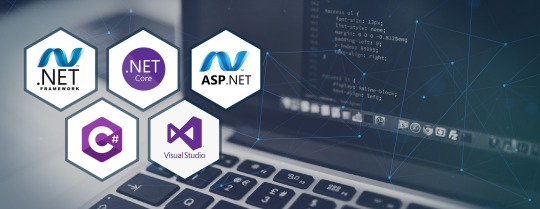
Seeree offers best .NET course in Bhubaneswar with 100% job assurance and low fee. Learn from real time corporate trainers and experienced faculties. Groom your personality with our faculty. Seeree helps to build confidence in students to give exposure to their skills to the company.
Course6:- SEO/Digital Marketing

In today's fast-paced digital world, businesses thrive on visibility, engagement, and strategic online presence. At SEEREE, we empower you with the skills and knowledge to master the art of Search Engine Optimization (SEO) and Digital Marketing.
Our comprehensive program is designed for beginners and professionals alike, covering everything from keyword research, on-page and off-page SEO, and content marketing, to social media strategies, PPC campaigns, and analytics.
With hands-on training, real-world projects, and guidance from industry experts, we ensure you're equipped to drive measurable results and excel in this dynamic field.
Join us at SEEREE Institute and take the first step towards becoming a leader in the digital marketing landscape!"
Course7:- SAP

SAP refers to Systems, Applications, and Products in Data Processing. Some of the most common subjects covered in these courses include human resource software administration, database management, and business training. Obtaining SAP certification can be done on a stand-alone basis or as part of a degree program.
Course8:- MERN

Seeree offers the best MERN course in Bhubaneswar with 100% job assurance and low fees. Learn from real-time corporate trainers and experienced faculty. Seeree helps students build confidence and gain skills to excel in company roles.
Are you ready to step into the exciting world of web development? At SEEREE, we bring you a comprehensive MERN Stack course that equips you with the skills to build modern, dynamic, and responsive web applications from start to finish.
The MERN Stack—comprising MongoDB, Express.js, React.js, and Node.js—is one of the most sought-after technologies in the web development industry. Our program is designed to help you master each component of the stack, from creating robust backends and managing databases to crafting dynamic frontends and seamless APIs.
Course9:- Software Testing

Seeree offers best Testing course in Bhubaneswar with 100% job assurance and low fee. Learn from real time corporate trainers and experienced faculties. Groom your personality with our faculty. Seeree helps to build confidence in students to give exposure to their skills to the company.
In the fast-paced world of software development, ensuring the quality and reliability of applications is crucial. At SEEREE, we offer a comprehensive Software Testing course designed to equip you with the skills and techniques needed to excel in this essential field.
Our program covers all aspects of software testing, from manual testing fundamentals to advanced automation tools and frameworks like Selenium, JIRA, and TestNG. You’ll learn to identify bugs, write test cases, execute test scripts, and ensure software meets high-quality standards.
With hands-on training, real-world scenarios, and guidance from experienced industry professionals, you’ll be prepared to take on roles like Quality Assurance Engineer, Test Analyst, and Automation Tester.
Join SEEREE Institute and gain the expertise to become a key player in delivering flawless software solutions. Your journey to a rewarding career in software testing starts here!"
Course10:- Data Analyst

Seeree offers the best Data Analyst course in Bhubaneswar with 100% job assurance and affordable fees. Our comprehensive curriculum is designed to cover all aspects of data analysis, from data collection and cleaning to advanced data visualization techniques. Learn from real-time corporate trainers and experienced faculty members who bring industry insights into the classroom. Enhance your analytical skills and boost your career prospects with hands-on projects and real-world case studies. Our faculty also focuses on grooming your personality and soft skills, ensuring you are well-prepared for interviews and workplace environments. Seeree is dedicated to building confidence in students, providing them with the necessary exposure to showcase their skills to top companies in the industry.
Course11:- Data Science

Seeree offers the best Data Science course in Bhubaneswar with 100% job assurance and affordable fees. Our comprehensive curriculum is designed to cover all aspects of data science, from data collection and cleaning to advanced data visualization techniques. Learn from real-time corporate trainers and experienced faculty members who bring industry insights into the classroom. Enhance your analytical skills and boost your career prospects with hands-on projects and real-world case studies. Our faculty also focuses on grooming your personality and soft skills, ensuring you are well-prepared for interviews and workplace environments. Seeree is dedicated to building confidence in students, providing them with the necessary exposure to showcase their skills to top companies in the industry.
Course12:- Data Engineering
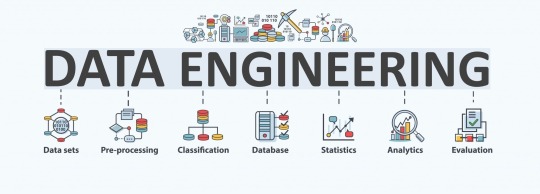
In the era of big data, the ability to design, build, and manage scalable data infrastructure is one of the most in-demand skills in the tech industry. At SEEREE, we are proud to offer a comprehensive Data Engineering course that prepares you for a career at the forefront of data-driven innovation.
Our program covers essential topics such as data modeling, ETL processes, data warehousing, cloud platforms, and tools like Apache Spark, Kafka, and Hadoop. You’ll learn how to collect, organize, and transform raw data into actionable insights, enabling businesses to make smarter decisions.
With real-world projects, expert mentorship, and hands-on experience with the latest technologies, we ensure that you are industry-ready. Whether you’re starting fresh or upskilling, this program will empower you to unlock opportunities in the rapidly growing field of data engineering.
Join SEEREE Institute and take the first step toward building the data pipelines that power tomorrow’s technology!"
Course13:- PGDCA

Seeree offers the best MERN course in Bhubaneswar with 100% job assurance and low fees. Learn from real-time corporate trainers and experienced faculty. Seeree helps students build confidence and gain skills to excel in company roles.
In today’s digital age, computer applications are at the heart of every industry, driving innovation and efficiency. At SEEREE Institute, our Post Graduate Diploma in Computer Applications (PGDCA) program is designed to provide you with in-depth knowledge and hands-on skills to excel in the IT world.
This program offers a comprehensive curriculum covering programming languages, database management, web development, software engineering, networking, and more. Whether you aim to enhance your technical expertise or step into a rewarding career in IT, PGDCA at SEEREE equips you with the tools to succeed.
With expert faculty, state-of-the-art labs, and real-world projects, we ensure that you gain practical experience and a strong theoretical foundation. By the end of the program, you’ll be prepared for roles such as software developer, system analyst, IT manager, or database administrator.
Course14:- Tally

Seeree offers the best Tally course in Bhubaneswar with 100% job assurance and low fees. Learn from real-time corporate trainers and experienced faculty. Seeree helps students build confidence and gain skills to excel in company roles.
In today’s business world, efficient financial management is key to success, and Tally is one of the most trusted tools for accounting and financial operations. At SEEREE Institute, we offer a comprehensive Tally course designed to equip you with the skills needed to manage business finances effortlessly.
Our program covers everything from the basics of accounting and bookkeeping to advanced features like GST compliance, inventory management, payroll processing, and generating financial reports. With hands-on training and real-world applications, you’ll gain practical expertise in using Tally effectively for businesses of any scale.
Whether you're a student, a professional, or a business owner, our Tally program is tailored to meet your needs and enhance your career prospects in the fields of accounting and finance.
Course15:- Graphics Design

In the world of creativity and communication, graphic design plays a vital role in bringing ideas to life. At SEEREE Institute, our Graphic Design course is tailored to help you unlock your creative potential and master the art of visual storytelling.
Our program covers a wide range of topics, including design principles, color theory, typography, branding, and user interface design. You’ll gain hands-on experience with industry-standard tools like Adobe Photoshop, Illustrator, and InDesign, enabling you to create stunning visuals for print, digital media, and beyond.
Whether you're an aspiring designer or a professional looking to sharpen your skills, our expert trainers and real-world projects will provide you with the knowledge and confidence to excel in this competitive field.
Join SEEREE Institute and start your journey toward becoming a skilled graphic designer. Let’s design your future together!"
2 notes
·
View notes
Text
Top Free Python Courses & Tutorials Online Training | NareshIT
Top Free Python Courses & Tutorials Online Training | NareshIT
In today’s tech-driven world, Python has emerged as one of the most versatile and popular programming languages. Whether you're a beginner or an experienced developer, learning Python opens doors to exciting opportunities in web development, data science, machine learning, and much more.
At NareshIT, we understand the importance of providing quality education. That’s why we offer free Python courses and tutorials to help you kick-start or advance your programming career. With expert instructors, hands-on training, and project-based learning, our Python online training ensures that you not only grasp the fundamentals but also gain real-world coding experience.
Why Choose NareshIT for Python Training?
Comprehensive Curriculum: We cover everything from Python basics to advanced concepts such as object-oriented programming, data structures, and frameworks like Django and Flask.
Expert Instructors: Our team of experienced instructors ensures that you receive the best guidance, whether you're learning Python from scratch or brushing up on advanced topics.
Project-Based Learning: Our free tutorials are not just theoretical; they are packed with real-life projects and assignments that make learning engaging and practical.
Flexible Learning: With our online format, you can access Python tutorials and training anytime, anywhere, and learn at your own pace.
Key Features of NareshIT Python Courses
Free Python Basics Tutorials: Get started with our easy-to-follow Python tutorials designed for beginners.
Advanced Python Concepts: Dive deeper into topics like file handling, exception handling, and working with APIs.
Hands-on Practice: Learn through live coding sessions, exercises, and project work.
Certification: Upon completion of the course, earn a certificate that adds value to your resume.
Who Can Benefit from Our Python Courses?
Students looking to gain a solid foundation in programming.
Professionals aiming to switch to a career in tech or data science.
Developers wanting to enhance their Python skills and explore new opportunities.
Enthusiasts who are passionate about learning a new skill.
Start Learning Python for Free
At NareshIT, we are committed to providing accessible education for everyone. That’s why our free Python courses are available online for anyone eager to learn. Whether you want to build your first Python program or become a pro at developing Python applications, we’ve got you covered.
Ready to Dive into Python?
Sign up for our free Python tutorials today and embark on your programming journey with NareshIT. With our structured courses and expert-led training, mastering Python has never been easier. Get started now, and unlock the door to a world of opportunities!
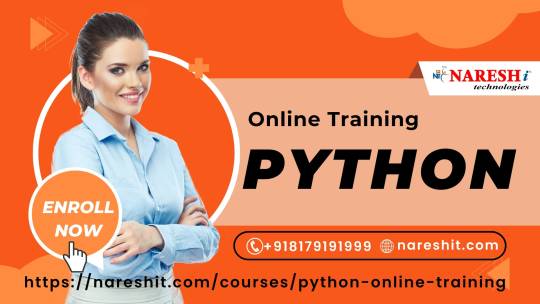
#python#pythontraining#freepythoncourse#onlinetraining#coding#pythontutorials#pythonforbeginners#programming#pythononline#learnpython#softwaretraining#freelearning#pythonprogramming#onlinetutorial#techtraining#pythoncourses#onlineeducation#pythoncode#codingforbeginners
2 notes
·
View notes
Text
How to Learn Programming?
Learning to code can be a rewarding and empowering journey. Here are some steps to help you get started:
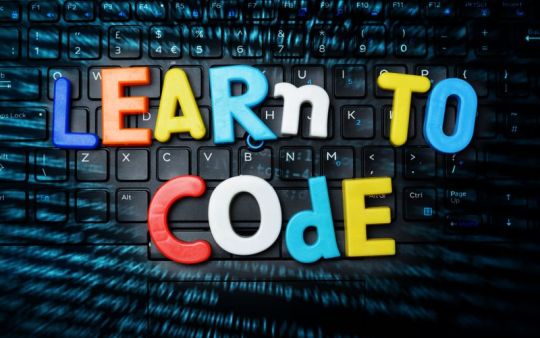
Define Your Purpose:
Understand why you want to learn to code. Whether it's for a career change, personal projects, or just for fun, having a clear goal will guide your learning path.
Choose a Programming Language:
Select a language based on your goals. For beginners, languages like Python, JavaScript, or Ruby are often recommended due to their readability and versatility.
Start with the Basics:
Familiarize yourself with fundamental concepts such as variables, data types, loops, and conditional statements. Online platforms like Codecademy, Khan Academy, or freeCodeCamp offer interactive lessons.
Practice Regularly:
Coding is a skill that improves with practice. Set aside dedicated time each day or week to code and reinforce what you've learned.
Build Simple Projects:
Apply your knowledge by working on small projects. This helps you gain hands-on experience and keeps you motivated.
Read Code:
Study existing code, whether it's open-source projects or examples in documentation. This helps you understand different coding styles and best practices.
Ask for Help:
Don't hesitate to ask questions on forums like Stack Overflow or Reddit when you encounter difficulties. Learning from others and getting feedback is crucial.
Join Coding Communities:
Engage with the coding community to stay motivated and learn from others. Platforms like GitHub, Stack Overflow, and coding forums provide opportunities to connect with fellow learners and experienced developers.
Explore Specializations:
As you gain more experience, explore different areas like web development, data science, machine learning, or mobile app development. Specializing can open up more opportunities and align with your interests.
Read Documentation:
Learn to navigate documentation for programming languages and libraries. It's a crucial skill for developers, as it helps you understand how to use different tools and resources effectively.
Stay Updated:
The tech industry evolves rapidly. Follow coding blogs, subscribe to newsletters, and stay informed about new developments and best practices.
Build a Portfolio:
Showcase your projects on platforms like GitHub to create a portfolio. It demonstrates your skills to potential employers or collaborators.
Remember, learning to code is a continuous process, and it's okay to face challenges along the way. Stay persistent, break down complex problems, and celebrate small victories.
7 notes
·
View notes
Text
Learning About Different Types of Functions in R Programming
Summary: Learn about the different types of functions in R programming, including built-in, user-defined, anonymous, recursive, S3, S4 methods, and higher-order functions. Understand their roles and best practices for efficient coding.
Introduction
Functions in R programming are fundamental building blocks that streamline code and enhance efficiency. They allow you to encapsulate code into reusable chunks, making your scripts more organised and manageable.
Understanding the various types of functions in R programming is crucial for leveraging their full potential, whether you're using built-in, user-defined, or advanced methods like recursive or higher-order functions.
This article aims to provide a comprehensive overview of these different types, their uses, and best practices for implementing them effectively. By the end, you'll have a solid grasp of how to utilise these functions to optimise your R programming projects.
What is a Function in R?
In R programming, a function is a reusable block of code designed to perform a specific task. Functions help organise and modularise code, making it more efficient and easier to manage.
By encapsulating a sequence of operations into a function, you can avoid redundancy, improve readability, and facilitate code maintenance. Functions take inputs, process them, and return outputs, allowing for complex operations to be performed with a simple call.
Basic Structure of a Function in R
The basic structure of a function in R includes several key components:
Function Name: A unique identifier for the function.
Parameters: Variables listed in the function definition that act as placeholders for the values (arguments) the function will receive.
Body: The block of code that executes when the function is called. It contains the operations and logic to process the inputs.
Return Statement: Specifies the output value of the function. If omitted, R returns the result of the last evaluated expression by default.
Here's the general syntax for defining a function in R:

Syntax and Example of a Simple Function
Consider a simple function that calculates the square of a number. This function takes one argument, processes it, and returns the squared value.

In this example:
square_number is the function name.
x is the parameter, representing the input value.
The body of the function calculates x^2 and stores it in the variable result.
The return(result) statement provides the output of the function.
You can call this function with an argument, like so:

This function is a simple yet effective example of how you can leverage functions in R to perform specific tasks efficiently.
Must Read: R Programming vs. Python: A Comparison for Data Science.
Types of Functions in R
In R programming, functions are essential building blocks that allow users to perform operations efficiently and effectively. Understanding the various types of functions available in R helps in leveraging the full power of the language.
This section explores different types of functions in R, including built-in functions, user-defined functions, anonymous functions, recursive functions, S3 and S4 methods, and higher-order functions.
Built-in Functions
R provides a rich set of built-in functions that cater to a wide range of tasks. These functions are pre-defined and come with R, eliminating the need for users to write code for common operations.
Examples include mathematical functions like mean(), median(), and sum(), which perform statistical calculations. For instance, mean(x) calculates the average of numeric values in vector x, while sum(x) returns the total sum of the elements in x.
These functions are highly optimised and offer a quick way to perform standard operations. Users can rely on built-in functions for tasks such as data manipulation, statistical analysis, and basic operations without having to reinvent the wheel. The extensive library of built-in functions streamlines coding and enhances productivity.
User-Defined Functions
User-defined functions are custom functions created by users to address specific needs that built-in functions may not cover. Creating user-defined functions allows for flexibility and reusability in code. To define a function, use the function() keyword. The syntax for creating a user-defined function is as follows:

In this example, my_function takes two arguments, arg1 and arg2, adds them, and returns the result. User-defined functions are particularly useful for encapsulating repetitive tasks or complex operations that require custom logic. They help in making code modular, easier to maintain, and more readable.
Anonymous Functions
Anonymous functions, also known as lambda functions, are functions without a name. They are often used for short, throwaway tasks where defining a full function might be unnecessary. In R, anonymous functions are created using the function() keyword without assigning them to a variable. Here is an example:

In this example, sapply() applies the anonymous function function(x) x^2 to each element in the vector 1:5. The result is a vector containing the squares of the numbers from 1 to 5.
Anonymous functions are useful for concise operations and can be utilised in functions like apply(), lapply(), and sapply() where temporary, one-off computations are needed.
Recursive Functions
Recursive functions are functions that call themselves in order to solve a problem. They are particularly useful for tasks that can be divided into smaller, similar sub-tasks. For example, calculating the factorial of a number can be accomplished using recursion. The following code demonstrates a recursive function for computing factorial:

Here, the factorial() function calls itself with n - 1 until it reaches the base case where n equals 1. Recursive functions can simplify complex problems but may also lead to performance issues if not implemented carefully. They require a clear base case to prevent infinite recursion and potential stack overflow errors.
S3 and S4 Methods
R supports object-oriented programming through the S3 and S4 systems, each offering different approaches to object-oriented design.
S3 Methods: S3 is a more informal and flexible system. Functions in S3 are used to define methods for different classes of objects. For instance:

In this example, print.my_class is a method that prints a custom message for objects of class my_class. S3 methods provide a simple way to extend functionality for different object types.
S4 Methods: S4 is a more formal and rigorous system with strict class definitions and method dispatch. It allows for detailed control over method behaviors. For example:

Here, setClass() defines a class with a numeric slot, and setMethod() defines a method for displaying objects of this class. S4 methods offer enhanced functionality and robustness, making them suitable for complex applications requiring precise object-oriented programming.
Higher-Order Functions
Higher-order functions are functions that take other functions as arguments or return functions as results. These functions enable functional programming techniques and can lead to concise and expressive code. Examples include apply(), lapply(), and sapply().
apply(): Used to apply a function to the rows or columns of a matrix.
lapply(): Applies a function to each element of a list and returns a list.
sapply(): Similar to lapply(), but returns a simplified result.
Higher-order functions enhance code readability and efficiency by abstracting repetitive tasks and leveraging functional programming paradigms.
Best Practices for Writing Functions in R
Writing efficient and readable functions in R is crucial for maintaining clean and effective code. By following best practices, you can ensure that your functions are not only functional but also easy to understand and maintain. Here are some key tips and common pitfalls to avoid.
Tips for Writing Efficient and Readable Functions
Keep Functions Focused: Design functions to perform a single task or operation. This makes your code more modular and easier to test. For example, instead of creating a function that processes data and generates a report, split it into separate functions for processing and reporting.
Use Descriptive Names: Choose function names that clearly indicate their purpose. For instance, use calculate_mean() rather than calc() to convey the function’s role more explicitly.
Avoid Hardcoding Values: Use parameters instead of hardcoded values within functions. This makes your functions more flexible and reusable. For example, instead of using a fixed threshold value within a function, pass it as a parameter.
Common Mistakes to Avoid
Overcomplicating Functions: Avoid writing overly complex functions. If a function becomes too long or convoluted, break it down into smaller, more manageable pieces. Complex functions can be harder to debug and understand.
Neglecting Error Handling: Failing to include error handling can lead to unexpected issues during function execution. Implement checks to handle invalid inputs or edge cases gracefully.
Ignoring Code Consistency: Consistency in coding style helps maintain readability. Follow a consistent format for indentation, naming conventions, and comment style.
Best Practices for Function Documentation
Document Function Purpose: Clearly describe what each function does, its parameters, and its return values. Use comments and documentation strings to provide context and usage examples.
Specify Parameter Types: Indicate the expected data types for each parameter. This helps users understand how to call the function correctly and prevents type-related errors.
Update Documentation Regularly: Keep function documentation up-to-date with any changes made to the function’s logic or parameters. Accurate documentation enhances the usability of your code.
By adhering to these practices, you’ll improve the quality and usability of your R functions, making your codebase more reliable and easier to maintain.
Read Blogs:
Pattern Programming in Python: A Beginner’s Guide.
Understanding the Functional Programming Paradigm.
Frequently Asked Questions
What are the main types of functions in R programming?
In R programming, the main types of functions include built-in functions, user-defined functions, anonymous functions, recursive functions, S3 methods, S4 methods, and higher-order functions. Each serves a specific purpose, from performing basic tasks to handling complex operations.
How do user-defined functions differ from built-in functions in R?
User-defined functions are custom functions created by users to address specific needs, whereas built-in functions come pre-defined with R and handle common tasks. User-defined functions offer flexibility, while built-in functions provide efficiency and convenience for standard operations.
What is a recursive function in R programming?
A recursive function in R calls itself to solve a problem by breaking it down into smaller, similar sub-tasks. It's useful for problems like calculating factorials but requires careful implementation to avoid infinite recursion and performance issues.
Conclusion
Understanding the types of functions in R programming is crucial for optimising your code. From built-in functions that simplify tasks to user-defined functions that offer customisation, each type plays a unique role.
Mastering recursive, anonymous, and higher-order functions further enhances your programming capabilities. Implementing best practices ensures efficient and maintainable code, leveraging R’s full potential for data analysis and complex problem-solving.
#Different Types of Functions in R Programming#Types of Functions in R Programming#r programming#data science
3 notes
·
View notes